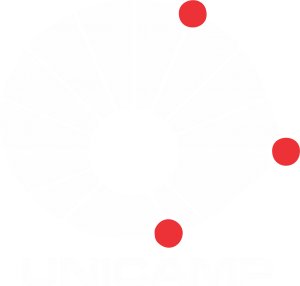Ciências Sociais Aplicadas
Contribution of payment for ecosystem services on multi-dimensions within Atlantic ForestContribution of payment for ecosystem services on multi-dimensions within Atlantic Forest
Website: https://bv.fapesp.br/en/auxilios/110098/contribution-of-payment-for-ecosystem-services-on-multi-dimensions-within-atlantic-forest/
| Grant number: | 21/10195-0 |
| Support Opportunities: | Research Projects - Thematic Grants |
| Duration: | April 01, 2022 - March 31, 2027 |
| Field of knowledge: | Biological Sciences - Ecology - Ecosystems Ecology |
| Convênio/Acordo: | Global Environment Facility (GEF) |
| Grantee: | Milton Cezar Ribeiro |
| Host Institution: | Instituto de Biociências (IB). Universidade Estadual Paulista (UNESP). Campus de Rio Claro. Rio Claro , SP, Brazil |
| Pesquisadores principais: | Ademar Ribeiro Romeiro ; André Victor Lucci Freitas ; Hilton Thadeu Zarate do Couto |
Abstract
Agriculture is replacing native vegetation worldwide, at a faster rate in the last decades. Biodiversity and ecosystem services have severely been affected, thus compromising essential services for human survival, such as food production, water availability, climate regulation, fiber production, and aesthetic values. Nature-based Solutions (NbS) - which included the Payment for Ecosystem Services (PES) initiatives - are alternatives to reverse the negative effects of habitat destruction. The Atlantic Forest Connexion project, an initiative leading by Global Environment Facility (GEF), Brazilian National Government thru MCTI, São Paulo State Infrastructure and Environment Secretary (SIMA/SP), and São Paulo State Funding Agency (FAPESP) had implemented several positive public policies, which includes Payment for Ecosystem Services, Organic Agriculture Certification and Sustainable Value Chains, between other actions. Thus, establishing efficient monitoring metrics to assess the effectiveness of PES programs and other public policy initiatives is essential to ensure beneficial results and the engagement of farmers in these programs for a long time. In this proposal we will quantify new metrics and use previous results of the PES programs already implemented at PSRB in the portion of São Paulo state to define a set of metrics to assess the benefits of these programs in the environmental, and socioeconomic context along space and time. We expect to aid in creating specific and efficient public policies related to PES gains in multiple spatial scales (local and landscape-level). Our proposal have six specific goals: I) to evaluate the contribution of PES programs already implemented in the PSRB to the re-establishing of biodiversity, ecological functions (alpha, beta and functional diversity), soil and water quality at farm level; II) to evaluate the influence of PES programs already implemented in the PSRB in the carbon stock at the farm and landscape-level scale; III) to understand the influence of the PES programs and land cover dynamic in the climate change at basin scale; IV) to identify the "core values" and "perspectives" that motivate the engagement of different groups of farmers in environmental conservation; V) to characterize the multiple criteria (cultural, religious, ethical, and economic) that lead the farmers to engage in PES programs; and VI) to identify which PES should be reassessed to establish more efficient public policies related to habitat conservation and restoration actions in the PSRB. To achieve these goals, we will characterize the biodiversity in a multi-taxa approach (plants, birds, mammals, amphibians, insects, and spiders) and estimate socioeconomic, and biotic and abiotic variables (soil and water quality, and carbon stock) at farm and landscape-levels. (AU)
| Inglês | Compreende Bem , Fala Bem , Lê Bem , Escreve Bem |







